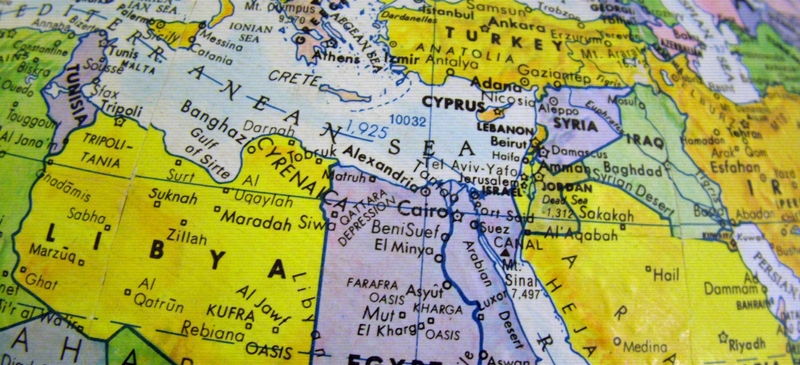
Time to act in the Middle East
Once again the Middle East is facing a crisis with rising levels of hatred and violence on all sides. The death toll in the "second" intifadah stands at 450 Palestinians and around 100 Israelis and is rising. As a result, the prospects for a comprehensive peace accord are slipping ever further away. The outside world, meanwhile, is at a loss over how to stop the conflict and how to salvage anything from the now defunct Middle East Peace Process.
Against this background, it is inevitable that the Europeans, like the Americans, are asking themselves what role they can play. The answer will be important not just for the Middle East itself, but also for the future of European foreign policy.
In recent years, the European Union (EU) has been trying to assert itself on the global stage, projecting its values and defending its interests world-wide. Many across Europe argue that the EU's external and political dimension will drive future integration.
But these attempts to forge a credible Common Foreign and Security Policy (CFSP) have been fraught with difficulties such as diplomatic incoherence and military weakness. As Javier Solana - the EU's High Representative for foreign policy - has said, for too long the EU has behaved like the World Bank: it was a place where people handed out money.
Now the EU must learn to use its considerable economic clout and the various Community instruments at its disposal - such as trade policy, humanitarian aid and economic and technical assistance - to support a political strategy. In other words, the EU's "first pillar" has to join up and support the aims of its "second pillar", which deals with foreign and security policy. The EU also has to overcome its aversion to setting clear political priorities and sticking to them in the face of external opposition. Sometimes in foreign policy it is necessary to antagonise people in order to achieve your political objectives.
What does this mean in concrete terms for the Middle East? Part of any European involvement will be declaratory in nature and focused on the short-term - the inevitable statement expressing "deep concern" over the violence and urging the parties to resume negotiations. That was the message delivered by Mr Solana during his recent trips to the region. It is encouraging that the US and the Europeans are for once working closely together in this "firefighting" strategy. Historically, transatlantic co-operation on the Middle East has been a direct function of the situation on the ground: when regional tensions are high, Americans and Europeans are prone to fall out.
But the EU must also develop its medium-term strategy. For instance, if the Europeans are serious about their claim that Israeli settlements in the occupied territories - the West Bank, Gaza, the Golan Heights and East Jerusalem - are illegal and an obstacle to peace, they should accept the consequences. This means that exports from these settlements should not enter the EU market on the preferential terms offered to Israel in the EU-Israel association agreement.
The Commissioner for external relations, Chris Patten, deserves full support in his attempt to make this clear to the Israelis. The EU should also stress that Israeli obstruction of Palestinian exports to the EU is wholly unacceptable. The same is true of the Israeli refusal to transfer the import duties and tax receipts it collects on behalf of the Palestinian Authority (PA). The EU is entitled to take a hard line on these issues because of the large sums of money it gives to the Palestinians, which total around 800 million euros a year. But this financial effort is seriously undermined by Israeli policy.
By the same token, the EU should not hesitate to use its extensive aid to the PA to demand tangible progress on standards of democracy, civil society and "good governance". So far, Yasser Arafat has exercised an unhealthy control over the PA. The EU could strengthen the Palestinian Legislative Council by insisting that it have the ultimate say over the distribution of donations.
The EU should also support those Palestinians who strive for a clearly defined constitution. This would benefit the Palestinians themselves, but more importantly, an autocratic and illiberal PA is not an acceptable partner for the Israelis. The EU can also use training programmes to enhance the standards of the Palestinian security forces. And to prepare for the eventual creation of a viable Palestinian state with East Jerusalem as its capital, the EU could offer financial assistance for infrastructural works connecting East Jerusalem with the Palestinian hinterland.
The point of all these measures should be to provide meaningful support for the EU?s overall diplomatic strategy. Both Israelis and Palestinians would doubtless object to some of these steps. Similarly, some in Washington will assert that the Middle East is the preserve of US diplomacy; that the Europeans are too pro-Arab; and that EU involvement should be limited to providing financial support. But the EU should have the courage of its convictions. Thankfully, the majority of American officials, aware of the failure of previous US administrations to resolve the problems, now welcome a constructive European role. The principles underpinning the EU?s approach to the Middle East are sound. The challenge ahead is to put words into action.
